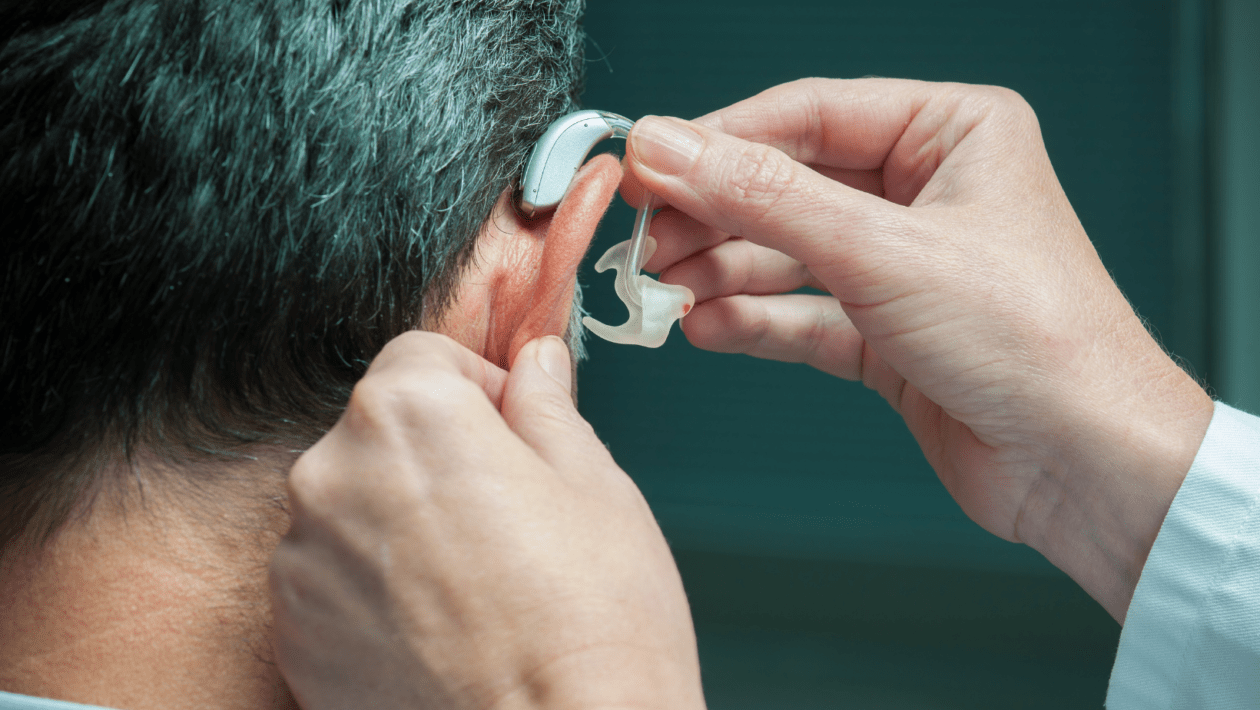The risk of Alzheimer’s-related dementia is an increasing matter of concern in older adults in a population. Although there has been no cure to eradicate the condition successfully, researchers over the years have been trying to develop the exact theory that would at least prevent the risk of dementia in older people.
A condition like dementia, especially in older people, pushes them towards the age of social isolation, anxiety, and loneliness. Life becomes difficult for these older adults, and there is a need to diminish the chances of developing these conditions in maximum older people in a country.
Today on World Hearing Day, it is, even more a requirement to understand how sensory impairment increases the risk of dementia in these older adults and how a further extension on this matter, whether or not, could develop a solution to this. In the previous research, the experts have linked dementia risk either with hearing loss or vision loss in a person individually.
But a recent study has brought an interesting concept which mentions that dual sensory impairment (hearing and vision loss) could lead to the risk of developing dementia. Researchers have found in their analysis that older adults who were found with dual sensory impairment had an 86 percent risk of developing dementia.
Analyzing the previous and new study
All the previous research on hearing and vision loss did not show any association between dementia in older adults. All the previous researchers either conducted a study on hearing loss connection with dementia or vision loss’ relationship with dementia. But the present study aimed to focus on both the sensory impairment to analyze if there is a possibility to reduce the risk of dementia if the sensory impairment is treated or improved.
The present research collected data from the Gingko Evaluation of Memory Study (GEM), a ‘double‐blind randomized‐controlled trial’ aimed at analyzing Gingko Biloba’s effectiveness (Maidenhair tree) for preventing the risk of dementia. The GEM study involved older adults aged 75 or more, and all these adults had a healthy cognitive function at the beginning of conducting the survey.
The researchers kept on collecting self-reported data on hearing and vision loss of these older adults and also kept examining these participants for almost eight years. Previous theories circled this matter, which says that hearing loss or vision loss impairment results from similar processes that lead to dementia, resulting from isolation and anxiety in older people due to hearing or vision impairment.
The final analysis from the collected data by these researchers led to specific concluding results. It showed that the last set of people included 2,051 individuals, and the GEM study’s evaluation brought out that:
14.3% of those who did not report any sensory impairment developed the risk of dementia, 16.9% of those who claimed at least one sensory impairment developed the risk of dementia, and 28.8% of those who developed dual sensory impairment developed dementia too.
The figures showed that older adults who developed dual sensory impairment had twice the risk of dementia development. It was also classified that people with a high level of DSI (dual sensory impairment) had a higher risk of developing Alzheimer’s-related dementia. Still, people with lower DSI levels also had the chance of significant dementia. However, researchers couldn’t find the risk of vascular dementia in these older adults.
The Concluding Word
The experts of this expert say that this study surrounding hearing and vision loss and its connection with dementia aims to finally find a solution and mitigate the condition in older adults. With the help of surgery, a hearing aid, or other aids, older adults could be saved from the risk of dementia and sensory loss predicament.
Experts have also mentioned that there is more research to understand how sensory impairment is connected with dementia risk and the mechanism of this occurrence, which could lead to finally developing a cure for reducing the risk of this condition in the general older population of a country.
The older adults and their near ones should be made aware of this possibility more urgently to act on it and reduce the risk immediately.




